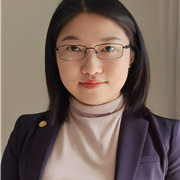Areas of Focus
- Mechanisms of Cortical Astrocytes in Sleep-Wake Regulation
- Role of Deep Brain/Nucleus Astrocytes in Epilepsy, Movement, and Emotion Models
- Pathophysiological Mechanisms of Chronic Sleep Fragmentation and Its Association with Neurodegenerative Diseases
Work Experience
- 2020/01-Present - Fudan University Shanghai Medical College - Junior Researcher
- 2016/11-2019/12 - Huazhong University of Science and Technology, Tongji Hospital - Resident/Attending Physician in Neurology
- 2013/01-2016/10 - University of Rochester Medical Center - Postdoctoral Fellow/Assistant Professor in Translational Neurology
- 2012/07-2012/12 - Huazhong University of Science and Technology, Tongji Hospital - Resident in Neurology
Academic Background & Achievements
- 2004/09-2012/06 Doctor of Medicine: Huazhong University of Science and Technology, Tongji Medical College
Publications
- Changes in the composition of brain interstitial ions control the sleep-wake cycle, Fengfei Ding, John O’Donnell, Qiwu Xu, Ning Kang, Nanna Goldman, Maiken Nedergaard, 2016
- α1-Adrenergic receptors mediate coordinated Ca2+ signaling of cortical astrocytes in awake, behaving mice, Fengfei Ding, John O'Donnell, Alexander S. Thrane, Douglas Zeppenfeld, Hongyi Kang, Lulu Xie, Fushun Wang, Maiken Nedergaard, 2013
- Does chronic sleep fragmentation lead to Alzheimer’s disease in young wildtype mice?, Li Ba, Lifang Huang, Ziyu He, Saiyue Deng, Yi Xie, Min Zhang, Cornelius Jacob, Emanuele Antonecchia, Yuqing Liu, Wenchang Xiao, Qingguo Xie, Zhili Huang, Chenju Yi, Nicola D’Ascenzo, Fengfei Ding, 2021
- Chronic sleep fragmentation shares similar pathogenesis with neurodegenerative diseases: Endosome-autophagosome-lysosome pathway dysfunction and microglia-mediated neuroinflammation, Yi Xie, Li Ba, Min Wang, Saiyue Deng, Simiao Chen, Lifang Huang, Min Zhang, Wei Wang, Fengfei Ding, 2020
- A chronic sleep fragmentation model using vibrating orbital rotor to induce cognitive deficit and anxiety-like behavior in young wild-type mice, Yi Xie, Saiyue Deng, Simiao Chen, Xuejiao Chen, Wenwen Lai, Lifang Huang, Li Ba, Wei Wang, Fengfei Ding, 2020
- Inhibition of astrocyte connexin 43 channels facilitates the differentiation of oligodendrocyte precursor cells under hypoxic conditions in vitro, Qiong Wang, Zhen Wang, Yeye Tian, Huaqiu Zhang, Yongkang Fang, Zhiyuan Yu, Wei Wang, Minjie Xie, Fengfei Ding, 2018
- Involvement of cationic channels in proliferation and migration of human mesenchymal stem cells, Fengfei Ding, Guibing Zhang, Lu Liu, Lizhong Jiang, Rui Wang, Yunjie Zheng, Guoping Wang, Minjie Xie, Yaqi Duan, 2012
- Distinct functional states of astrocytes during sleep and wakefulness: Is norepinephrine the master regulator?, John O’Donnell, Fengfei Ding, Maiken Nedergaard, 2015
- Focal solute trapping and global glymphatic impairment in a murine model of multiple microinfarcts, Minghuan Wang, Fengfei Ding, Saiyue Deng, Xuequn Guo, Wei Wang, Jeffrey Iliff, Maiken Nedergaard, 2017
- Intersitial ion homeostasis and acid-base balance are maintained in oedematous brain of mice with acute toxic liver failure, Marta Obara-Michlewska, Fengfei Ding, Mariusz Popek, Alexei Verkhratsky, Maiken Nedergaard, Magdalena Zielinska, Jan Albreckt, 2018
Awards
- Shanghai Science and Technology Commission 'Science and Technology Innovation Plan', Rising Star Talent Project (2021/07-2024/06): Role and Mechanism of Astrocytes in Sleep-Wake Regulation
- China Association for Science and Technology Youth Talent Project (2020/01-2023/01): Chinese Sleep Research Society





